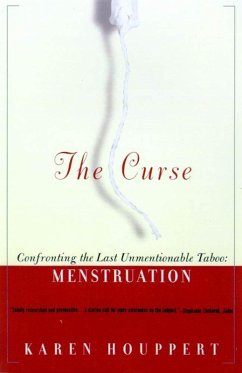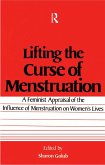A provocative look at the way our culture deals with menstruation.
The Curse examines the culture of concealment that surrounds menstruation and the devastating impact such secrecy has on women's physical and psychological health. Karen Houppert combines reporting on the potential safety problems of sanitary products--such as dioxin-laced tampons--with an analysis of the way ads, movies, young-adult novels, and women's magazines foster a "menstrual etiquette" that leaves women more likely to tell their male colleagues about an affair than brazenly carry an unopened tampon down the hall to the bathroom. From the very beginning, industry-generated instructional films sketch out the parameters of acceptable behavior and teach young girls that bleeding is naughty, irrepressible evidence of sexuality. In the process, confident girls learn to be self-conscious teens.
And the secrecy has even broader implications. Houppert argues that industry ad campaigns have effectively stymied consumer debate, research, and safety monitoring of the sanitary-protection industry. By telling girls and women how to think and talk about menstruation, the mostly male-dominated media have set a tone that shapes women's experiences for them, defining what they are allowed to feel about their periods, their bodies, and their sexuality.
The Curse examines the culture of concealment that surrounds menstruation and the devastating impact such secrecy has on women's physical and psychological health. Karen Houppert combines reporting on the potential safety problems of sanitary products--such as dioxin-laced tampons--with an analysis of the way ads, movies, young-adult novels, and women's magazines foster a "menstrual etiquette" that leaves women more likely to tell their male colleagues about an affair than brazenly carry an unopened tampon down the hall to the bathroom. From the very beginning, industry-generated instructional films sketch out the parameters of acceptable behavior and teach young girls that bleeding is naughty, irrepressible evidence of sexuality. In the process, confident girls learn to be self-conscious teens.
And the secrecy has even broader implications. Houppert argues that industry ad campaigns have effectively stymied consumer debate, research, and safety monitoring of the sanitary-protection industry. By telling girls and women how to think and talk about menstruation, the mostly male-dominated media have set a tone that shapes women's experiences for them, defining what they are allowed to feel about their periods, their bodies, and their sexuality.
Dieser Download kann aus rechtlichen Gründen nur mit Rechnungsadresse in D ausgeliefert werden.









